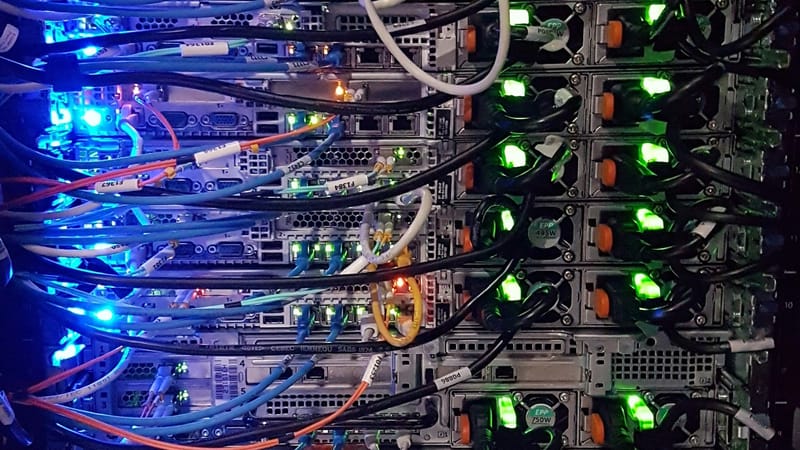Could AI Solve Our Food Crisis?
In an intriguing documentary, researchers posed that very question. Her we take a deep dive.
The global food system has always been fragile. Today, however, it's facing unprecedented pressures. Climate change, depleted soils, and chronic water shortages have combined into a complex threat that could unravel our ability to reliably feed the world.
As these problems deepen, farmers and scientists are increasingly asking: Could artificial intelligence be the surprising ally we need to ensure global food security?
AI comes to the aid of small Farmers in Africa
In places like Cameroon, smallholder farmers face daily struggles with pests, plant diseases, and exhausted soils. Expert agricultural advice is scarce, and when available, often too late to prevent crop loss. But imagine if expert guidance was always at their fingertips.
This idea is becoming reality thanks to a Cameroonian entrepreneur named Adamou Nchange Kouotou, creator of an innovative app called Agrix Tech. Using artificial intelligence, the app allows farmers to snap photos of their crops to instantly diagnose problems. Within moments, they know whether pests, disease, or nutritional deficiencies threaten their harvest, and exactly how to manage the issue.
Crucially, the app works offline and provides advice in local languages. This technology effectively bridges the gap between remote villages and agricultural experts, empowering farmers with real-time support that could significantly boost their yields and livelihoods.
Saving water through precision agriculture in Spain
Meanwhile, thousands of miles away in southern Spain, farmers face a vastly different but equally daunting challenge: water scarcity. The region known as Europe's vegetable garden depends heavily on irrigation, but dwindling water supplies have made traditional farming methods increasingly unsustainable.
Farmers there have turned to AI-powered sensors that continuously monitor greenhouse conditions like soil moisture, temperature, and humidity. Algorithms process this data to deliver precise irrigation instructions. Instead of watering crops based on routine or guesswork, Spanish farmers now irrigate precisely when their plants demand it. This targeted approach dramatically reduces water use without sacrificing productivity, helping farmers adapt successfully to climate stress.
Robotics could ease labour challenges
But AI's growing role in agriculture isn't limited to plant health or water conservation. Labour shortages and harsh working conditions have long plagued farming industries globally. To tackle these issues, innovators like Madrid-based engineer Roemi Fernandez Saavedra are turning to robotics.
Fernandez Saavedra is developing robotic harvesters equipped with AI-driven vision systems that identify ripe tomatoes and aubergines. The robots gently pick produce with minimal waste, reducing losses and labour costs. While robotic harvesting may soon revolutionise farm labour, it raises critical social questions: What happens to agricultural workers replaced by machines? Could automation widen rural economic inequalities?
These tough questions remind us that technological advancements carry real-world implications and responsibilities.
Reducing food waste through AI forecasting
Another profound yet often overlooked challenge is food waste. Every year, restaurants and cafeterias discard staggering amounts of edible food. In Germany alone, this waste amounts to millions of tonnes annually. Tackling this invisible problem can significantly enhance sustainability and efficiency.
One practical AI-driven solution is predictive software used in company canteens, such as in Lünen, Germany. These systems forecast daily meal preferences based on past consumption patterns, ensuring chefs prepare the right amount of food. Such precise forecasting dramatically reduces waste, creating a more efficient and environmentally responsible kitchen.
Navigating ethical challenges in AI agriculture
As promising as these AI-driven solutions are, their implementation comes with ethical considerations that cannot be ignored. Who controls and benefits from the data collected on farms? How can farmers protect themselves from exploitation or unfair competition as reliance on technology grows?
Privacy concerns, labour displacement, and unequal access to technology highlight the human dimension of AI. While these tools have extraordinary potential, they also pose genuine risks if deployed without transparency and care.
The future depends on wise integration of AI
Ultimately, the challenge isn't merely whether AI can help farmers—it certainly can—but how thoughtfully we integrate it into agriculture. AI can enhance food security, sustainability, and economic resilience if managed equitably and responsibly.
Our task now is to ensure that technology serves broader social and environmental goals, protecting both farmers and ecosystems. This approach requires not just smarter farming, but wiser farming: careful, inclusive, and humane.







